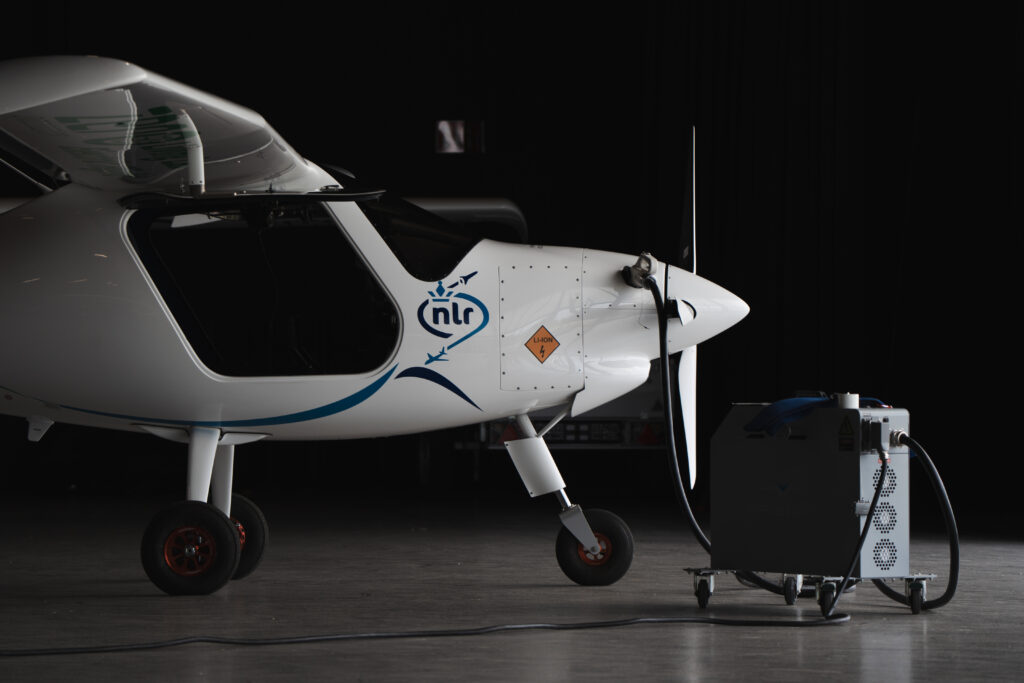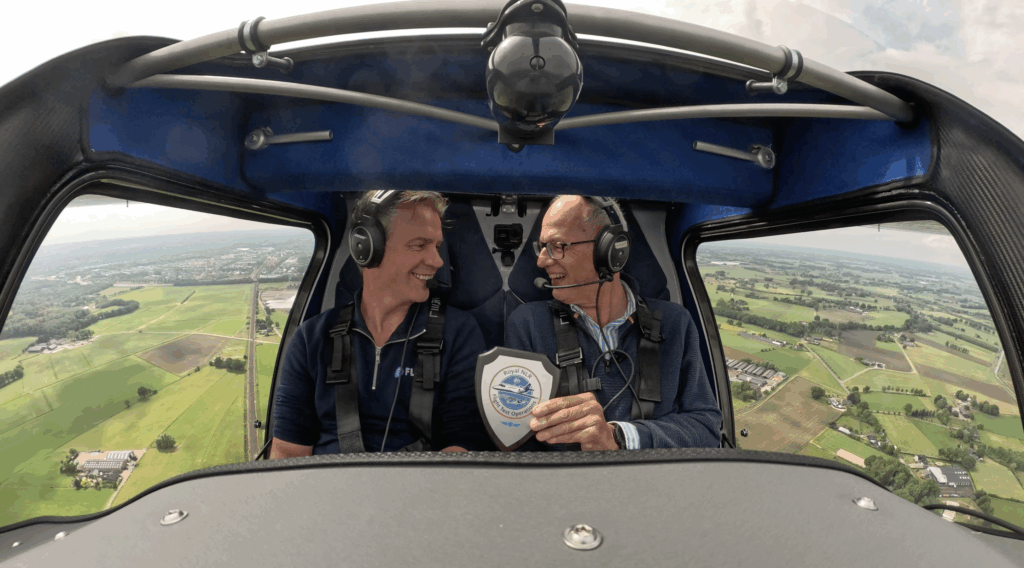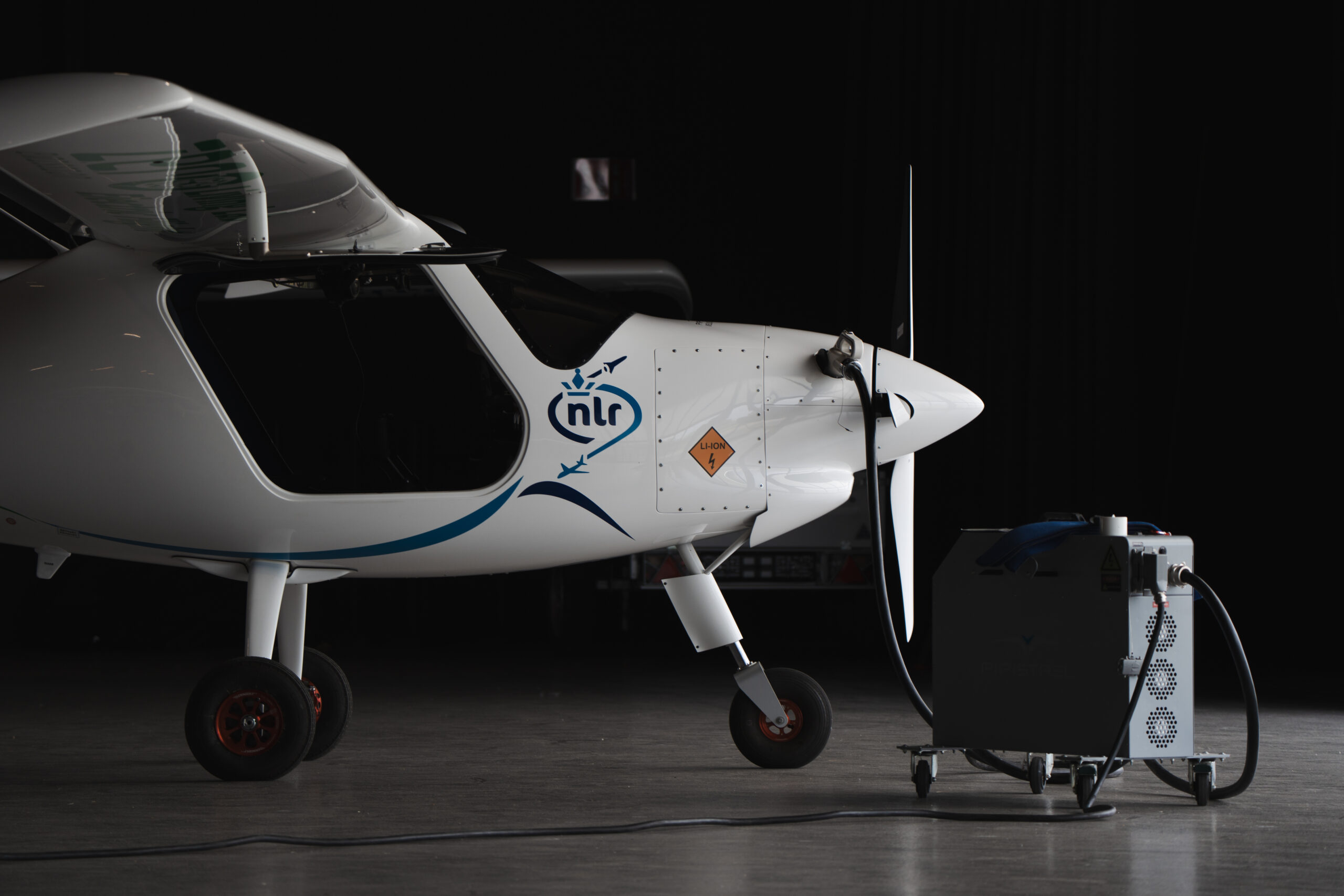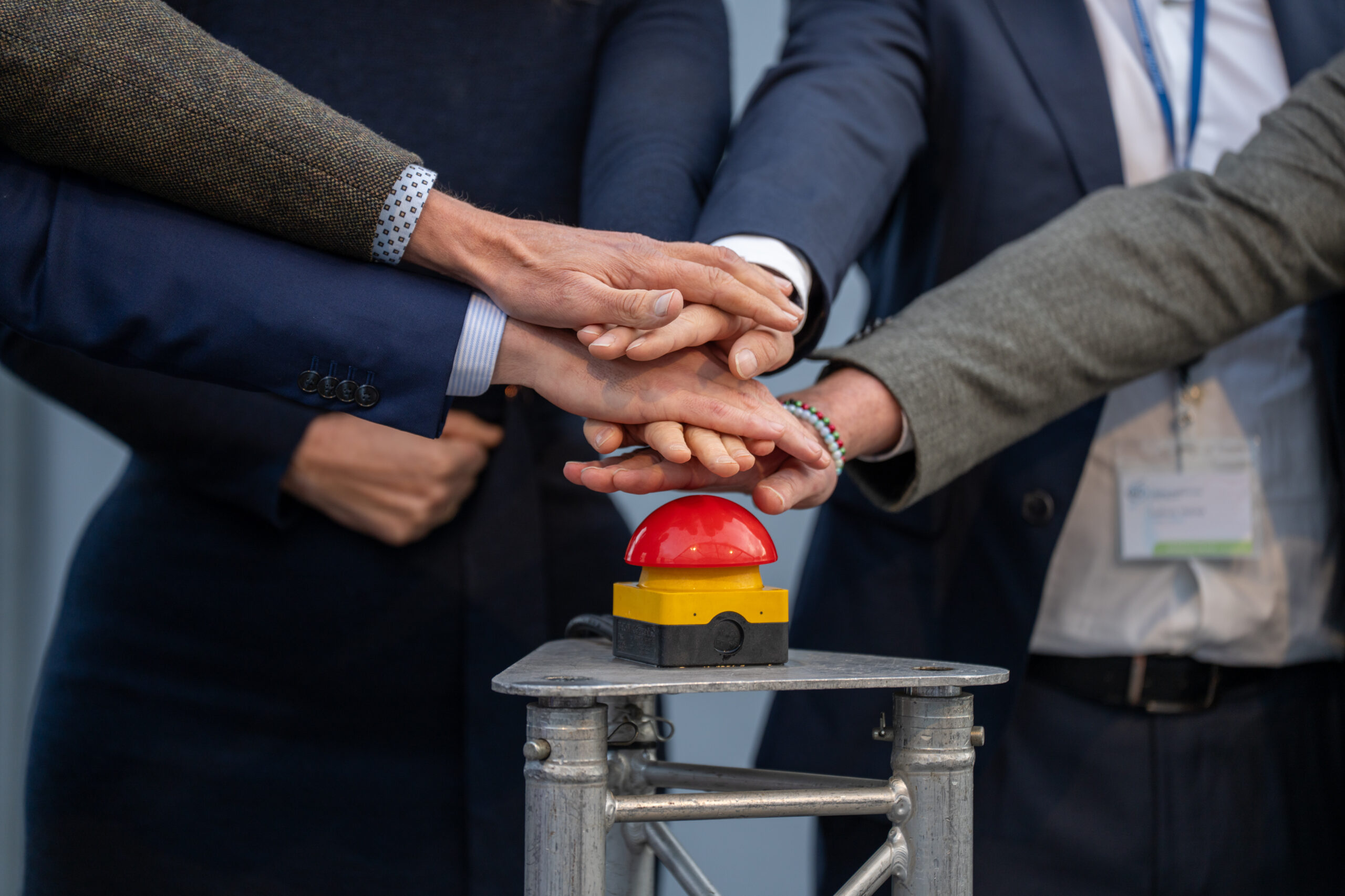Royal NLR and E-Flight Academy share a common goal: to enhance and make electric flight more accessible to a broader audience. To this end, Michel Peters, Managing Director of NLR, and Evert-Jan Feld, Co-Founder and Head of Training at E-Flight Academy, have signed a Memorandum of Understanding (MoU) to collaborate on research into electric flight. The partnership aims to contribute to the sustainable development of aviation.

Batteries and Hydrogen
When thinking of electric transportation, batteries often come to mind. This is also true for the Pipistrel Velis Electro, the only aircraft type with electric propulsion and an EASA type certificate that can be flown in the Netherlands. This single propeller aircraft uses battery packs suitable for a flight of approximately one hour with two people.
However, it is also possible to use hydrogen as an energy carrier. Flying on liquid hydrogen is considered a promising technology that can contribute to the climate goals of aviation. A fuel cell converts the hydrogen into electrical energy for the electric motor. Hydrogen provides a high amount of energy per unit of mass. While there are advantages to using hydrogen, there are also challenges to overcome, such as the weight and volume of the tank and the systems required on board the aircraft. For example, to store liquid hydrogen, it must be kept at a temperature of -253 degrees Celsius. Additionally, the extremely cold hydrogen must be warmed up before it can be used by the fuel cell.
Flight Characteristics
E-Flight’s flight simulator can be used to efficiently and effectively determine whether the flight behaviour of a modified aircraft remains the same after a weight increase and aerodynamic adjustments. NLR can use the simulator to evaluate the flight characteristics of the heavily modified aircraft in advance. First, the virtual flight model of the unmodified Pipistrel will be refined and validated in the simulator. Then, the model will be adapted to the shapes and weights associated with the hydrogen design to experience the differences.
Concrete Steps
This type of agreement often requires a long-term commitment, but in this case, the parties can take concrete steps relatively quickly. Initially, the focus will be on the use of batteries. Michel Peters explains: “E-Flight and NLR will collect data from electric flights together to research battery performance and operational improvements. We can start working on this right away.”
Evert-Jan Feld agrees: “Battery degradation is still an important factor for users of electric aircraft. Any improvement in this area is a step forward in making aviation more sustainable.”
Aircraft
E-Flight currently has five aircraft that can be used for electric flight. The PH-NLX of NLR, a Pipistrel Velis Electro of the same type, is currently stationed at E-Flight Academy in Teuge. The aircraft falls under a special arrangement that allows NLR to conduct experiments with it, such as the ambition to fly on liquid hydrogen in 2026.




